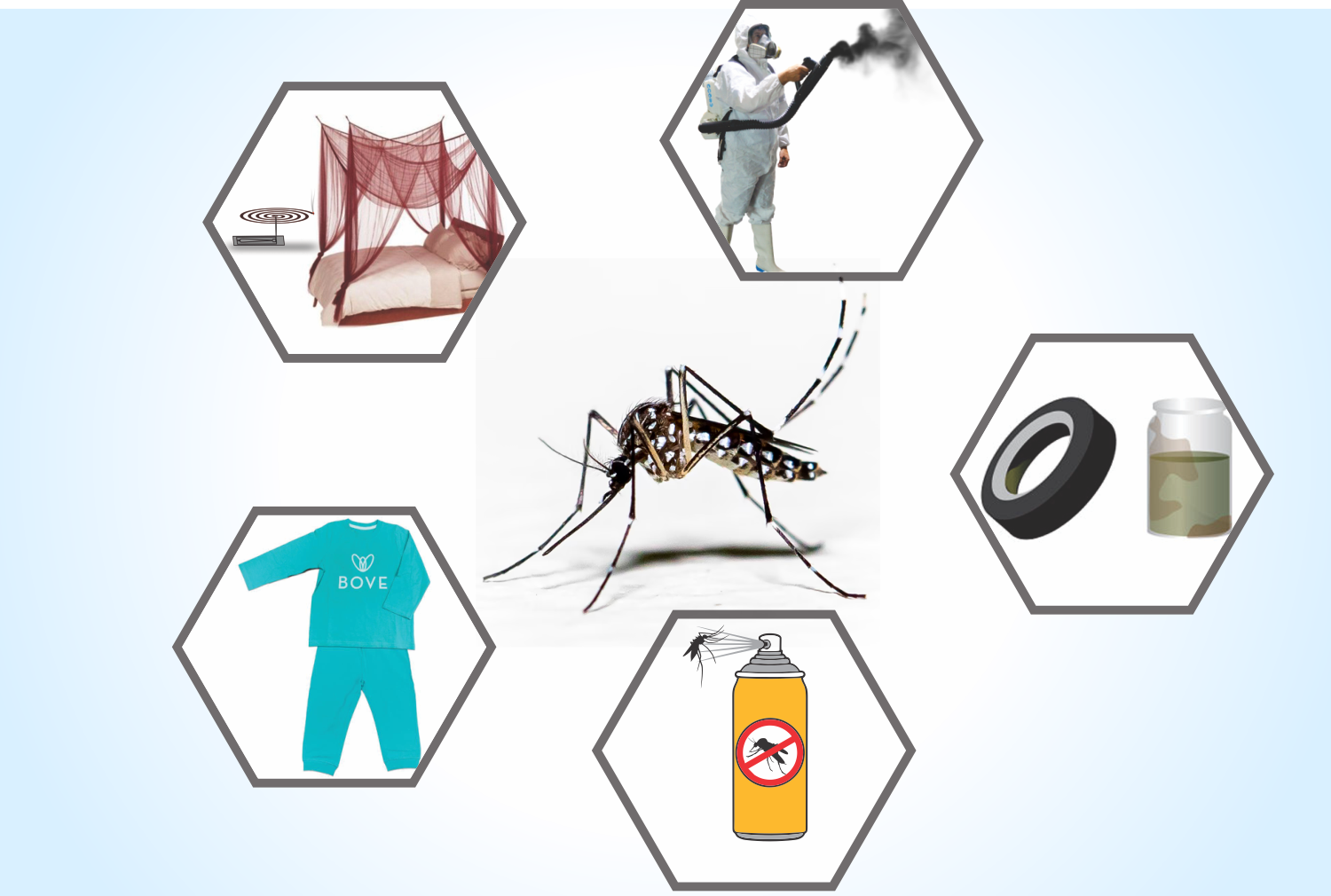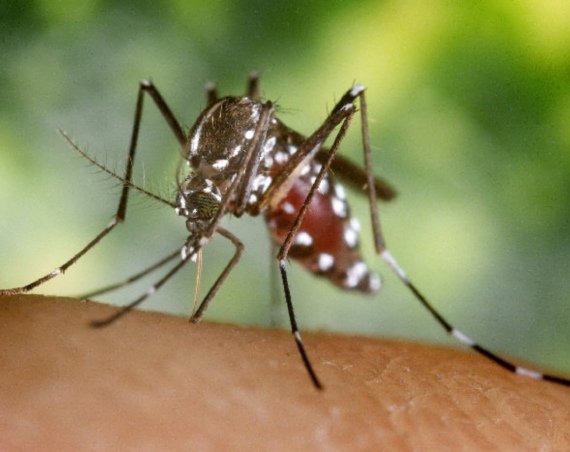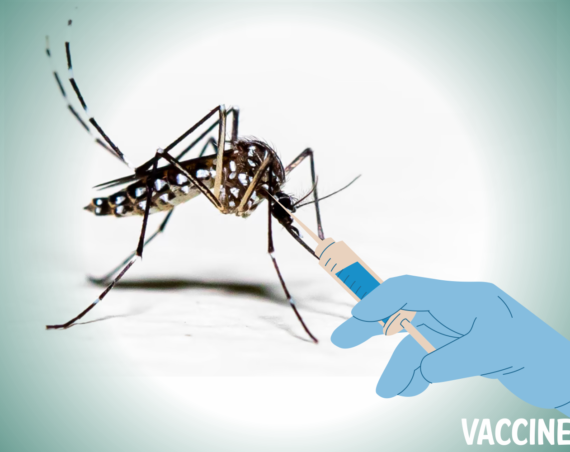Overview
Dengue fever is a painful, unbearable, mosquito-borne, arboviral illness spread by the Aedes aegypti or Aedes albopictus mosquito. The Aedes aegypti mosquito primarily bites aggressively in the morning (mainly active for two hours after sunrise) and at sunset. The dengue virus has four serotypes: DENV 1, DENV 2, DENV 3, and DENV 4. There is no drug at present to completely cure dengue infection. In India, dengue fever is endemic to all states except Ladakh and Lakshadweep. Many states in India have seen significant outbreaks of dengue fever since the 1960s. Identifying the symptoms, visiting a physician at the right time, proper management, and proper diet of dengue patients are the key factors in the early recovery of a dengue patient. The government of India is taking necessary steps to create awareness among the citizens about the dengue virus. Educating the citizens, keeping the environment clean, proper epidemiological surveys, and carrying out early diagnosis can prevent the spread of the Dengue Virus. In this article, we will come across different strategic awareness programs carried out by the Indian government to curb the spread of Dengue Fever in India.
Different Strategic Awareness Programmes in India
- National Vector Borne Disease Control Programme (NVBDCP)
The NVBDCP is an umbrella or a supporting/framework program under the Ministry of Health and Family Welfare to prevent and control different vector-borne diseases like Dengue, Chikungunya, Kala-Azar, Malaria, Lymphatic Filariasis, and Japanese Encephalitis. The NVBDCP is responsible for providing funding, conducting guidelines, video conferences, carry out focused IEC/BCC activities to create awareness and control dengue fever. With the help of the National Institute of Virology, the NVBDCP has manufactured Dengue Kits to strengthen the diagnostic facilities of Sentinel Surveillance Hospitals (SSHs) and improve the laboratory support in curbing dengue fever. - National Dengue Day and Anti Dengue Month
Every year on May 16, India observes National Dengue Day. Similarly, July is designated as the Anti-Dengue Month. Both National Dengue Day and Anti Dengue Month is an effort by the National Vector Borne Disease Control Programme (NVBDCP), Ministry of Health and Family Welfare, to create awareness among ordinary citizens about the symptoms, risk factors, and causes of dengue fever, carry out disease surveillance of dengue fever in India, prevent catastrophic outbreaks of dengue fever, and educate people about the precaution measures on to keep them safe from dengue infection. - Strategic Information Education Communication (IEC) Plan
The Strategic Information Education Communication (IEC) Plan, led by the Ministry of Health and Family Welfare, aims to reach ordinary citizens with a 360-degree communication approach. The IEC employs all media channels to raise awareness and educate citizens, including mass media, mid-media, social media, and interpersonal activities. As mentioned in the second point, this includes observing Health Awareness Days and Months. In addition, reaching out to as many people as possible to convey messages has become an essential part of social awareness programs or campaigns in the age of social media platforms such as Facebook, Twitter, YouTube, and Instagram.Strategic Information Education Communication also includes publishing awareness or education blogs or articles, advertising in government websites, newspapers, radio, and television, and creating panel discussions in television both in regional language, Hindi, and English. The education information includes myths vs. facts, dos, and don’ts, identifying symptoms, stopping breeding mosquitoes, and many more. - The “ 10 Hafte-10 Baje-10 minute” campaign by the Delhi Government, India
The Delhi Government in India has successfully led the “10 Hafte-10 Baje-10 minute” campaign in 2020 and 2021 to curb the spread of dengue fever in the city. The campaign slogan “10 Hafte-10 Baje-10 minute” stands for 10 minutes at 10 pm every Sunday for ten weeks. According to the above slogan, the administration has urged Delhi residents to check their homes and premises for stagnant water and clean it up. Cleaning the premises and removing stagnant water from the house and neighborhood will prevent mosquitoes’ breeding, ultimately curbing the spread of the disease.
The Long Term Action Plan released by the Government of India in January 2007 for Prevention and Control of Dengue Fever
The Long Term Action Plan released by the NVBDCP under the Ministry of Health and Family Welfare, India, for curbing Dengue Fever includes three primary strategies:
- Reporting early cases of dengue and their management
The strategies to report early cases of dengue fever include:
- Fever alert surveillance
- Strengthening the referral services
- Opening sentinel surveillance sites along with high-end laboratory support
- Allowing the involvement of the private sector in sentinel surveillance.
The long term strategies to manage the cases of dengue include:
- Proper management of positive cases
- Preparing the healthcare workforce to provide a rapid response during an epidemic
- Creating awareness and educating the citizens to have a healthy diet during dengue fever
- Reducing the risk of Transmission through Integrated Vector Management
The long term strategies to prevent or reduce the risk of transmission of dengue fever include:
- Carrying out proper Entomological Surveillance that also includes larval surveys
- Steps to prevent the growth of larvae like:
- Removing the source or place of breeding
- Killing mosquitoes and larvae with the help of biocides
- Use of fish in ponds that feeds on larvae
- Keeping the environment clean
- Carrying out proper prevention and healthy practices to educate the citizens like:
- Use of protective clothing while going out of the house.
- Use of mosquito nets while sleeping
- Applying mosquito repellent creams after taking the advice from your physician.
- Spraying 2% pyrethrum extract inside the house after calling a pest-controller team.
- Finally, through different supportive interventions like:
- Behaviour Change Communication (BCC)
- Supervision and Monitoring
- Human Resource Development through capacity building
- Coordination Committees
- Legislative support
- Inter-sectoral convergence
One can read the details of the long-term plan by visiting the NVBDCP website under the Government of India Initiatives for Dengue and Chikungunya.
REFERENCES
- Dengue, National Vector Borne Disease Control Programme, Ministry of Health and Family Welfare, Government of India. Accessed at
https://nvbdcp.gov.in/index1.php?lang=1&level=1&sublinkid=5776&lid=3690 - Government Initiatives for Dengue and Chikungunya. Accessed at
https://nvbdcp.gov.in/index4.php?lang=1&level=0&linkid=444&lid=3726 - National Dengue Day 2021: Tips & How to Protect Yourself from the Disease. Accessed at
https://www.nivabupa.com/health-insurance-articles/national-dengue-day-2021-tips-to-protect-yourself-from-dengue.html - National Dengue Day. Accessed at https://www.nhp.gov.in/national-dengue-day_pg
- July is anti-dengue month. Accessed at https://morungexpress.com/july-is-anti-dengue-month
- 2020-21 Annual Report, Department of Health and Family Welfare, Ministry of Health and Family Welfare, Government of India, Pg -114. Accessed at
https://main.mohfw.gov.in/sites/default/files/Annual%20Report%202020-21%20English.pdf - Delhi government launches ’10 Hafte-10 Baje-10 Minute’ campaign to curb dengue. Accessed at https://www.aninews.in/news/national/general-news/delhi-govt-launches-10-hafte-10-baje-10-minute-campaign-to-curb-dengue20210922122822/





